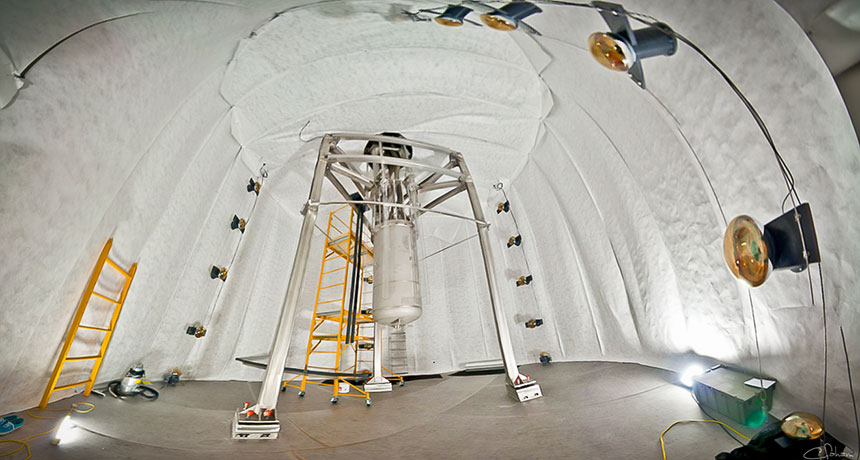Latest search for dark matter comes up empty

Dark matter has once again given scientists the slip. Physicists with the Large Underground Xenon experiment, or LUX, report that their final set of data, collected from October 2014 to May 2016, contains no evidence of dark matter, the mysterious substance that makes up more than 25 percent of the universe.
The LUX detector, located deep underground in Lead, S.D., uses a tank of 370 kilograms of ultra-pure liquid xenon to detect interacting particles by picking out blips of light they produce. The scientists are scheduled to report their results July 21 in Sheffield, England, at the Identification of Dark Matter conference.
Although scientists’ dreams of directly detecting dark matter remain unfulfilled, the result helps rule out possible models for what the elusive particles might be. And physicists haven’t given up hope of catching a glimpse of dark matter. A successor experiment, LUX-ZEPLIN, will continue the search.